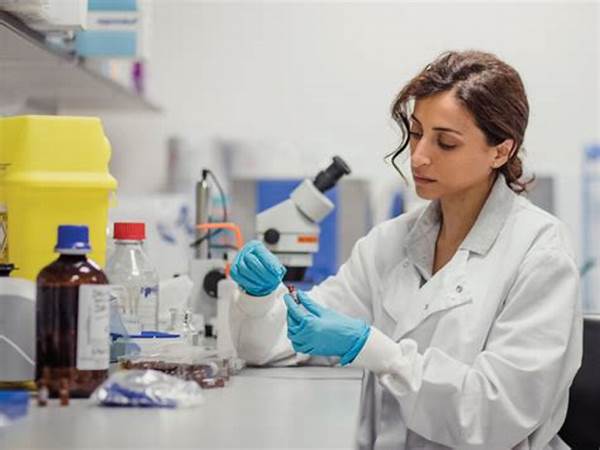Top 20 Biochemical Engineer Fresher Interview Questions
Top 20 Biochemical Engineer Fresher Interview Questions
Table of Contents
1. What is Biochemical Engineer?
Example – “Biochemical engineering is a fascinating field that combines biology, chemistry, and engineering principles to develop innovative solutions for various industries, including pharmaceuticals, food production, and environmental sustainability.”
2. Why Did You Choose Biochemical Engineering as Your Field of Study?
Example – “I was always intrigued by the potential of harnessing biological processes to solve real-world problems. Biochemical engineering allows me to apply my passion for science and engineering to create sustainable solutions that benefit society.”
3. Can You Explain the Basic Principles of Biochemical Engineering?
Example – “Biochemical engineering involves the application of biological principles to design and optimize processes for producing valuable products, such as pharmaceuticals and biofuels. It includes aspects like bioreactor design, fermentation, and downstream processing.”
4. What Are Some Common Techniques Used in Biochemical Engineering?
Example – “Common techniques include cell culture, chromatography, centrifugation, and protein purification. These methods are essential for isolating and processing biomolecules efficiently.”
5. Discuss the Importance of Safety Protocols in Biochemical Engineering.
Example – “Safety is paramount in biochemical engineering. Strict safety protocols are in place to protect both researchers and the environment from potential hazards associated with working with biological materials and chemicals.”
6. How Do You Stay Updated with the Latest Developments in Biochemical Engineering?
Example – “I regularly read scientific journals, attend conferences, and participate in online forums to stay updated with the latest advancements. In this quickly changing sector, continuous learning is essential.”
7. Explain the Role of Bioreactors in Biochemical Processes.
Example – “Bioreactors are vessels used to cultivate microorganisms or cells for various purposes, such as producing enzymes or vaccines. They provide a controlled environment for optimal growth and product formation.”
8. What Are the Key Differences Between Batch and Continuous Bioprocessing?
Example – “Batch processing involves producing a product in discrete steps, while continuous processing is a continuous and uninterrupted production process. The choice depends on the specific requirements of the product.”
9. Can You Elaborate on the Downstream Processing in Biochemical Engineering?
Example – “Downstream processing involves the purification and isolation of bio-based products from the fermentation broth. It includes steps like filtration, chromatography, and drying.”
10. Discuss the Significance of Quality Control in Biochemical Processes.
Example – “Quality control ensures that the final product meets the required standards. It involves rigorous testing and analysis to guarantee product quality and safety.”
11. How Do You Handle a Scenario Where a Bioprocess Is Not Yielding the Expected Results?
Example – “In such cases, I would first analyze the process parameters and troubleshoot any issues. If necessary, I would consult with colleagues or experts to find a solution and make necessary adjustments to achieve the desired results.”
12. What Software Tools Are You Proficient in for Biochemical Engineering Analysis?
Example – “I am proficient in using software like MATLAB, Aspen Plus, and COMSOL for process simulation, optimization, and data analysis, which are valuable tools in biochemical engineering”.
13. Tell Us About a Challenging Project You’ve Worked on During Your Studies.
Example – “During my studies, I worked on optimizing the production of a biodegradable polymer using microbial fermentation. It was challenging due to the complex nature of the process, but we achieved significant improvements in product yield and purity.”
14. How Do You Prioritize Multiple Tasks and Deadlines in a Lab Environment?
Example – “I rank tasks according to their urgency and importance. Effective time management, clear communication within the team, and regular progress checks help ensure that deadlines are met without compromising quality.”
15. Discuss the Ethical Considerations in Biochemical Engineering.
Example – “Ethical considerations in biochemical engineering involve ensuring the responsible use of genetic engineering, minimizing environmental impact, and respecting ethical standards when working with human cells or organisms.”
16. What Do You Think Are the Future Trends in Biochemical Engineering?
Example – “I believe the future of biochemical engineering lies in sustainable bioprocesses, personalized medicine, and the development of bio-based materials to replace traditional plastics and fuels.”
17. Can You Share an Example of a Successful Bioprocess Optimization You’ve Been a Part Of?
Example – “Certainly! I was part of a team that optimized the production of an enzyme used in the pharmaceutical industry. Through process improvements, we increased the enzyme’s yield by 30%, resulting in significant cost savings for the company.”
18. Explain the Role of Bioinformatics in Biochemical Engineering.
Example – “Bioinformatics plays a crucial role in analyzing biological data, such as DNA sequences and protein structures. It helps in designing better bioprocesses and understanding the genetic basis of microbial production.”
19. How Do You Handle Conflicts or Differences of Opinion in a Team Setting?
Example – “I believe in open and respectful communication. When conflicts arise, I encourage constructive discussions to find common ground and reach a consensus that benefits the project and team.”
20. What Are Your Long-term Career Goals in Biochemical Engineering?
Example – “My long-term goal is to become a recognized expert in biochemical engineering, contributing to groundbreaking research and innovations that address global challenges in healthcare and sustainability.”




